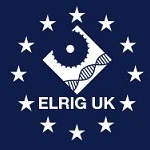

|
Poster
13 |
Changing Memory: Multi-Parameter Flow to Interrogate T Cells Following Immunotherapy |
The immune system has evolved
sophisticated mechanisms to distinguish between self and non-self, leading to
appropriate and controlled immune responses against infection and cancer or
tolerance to avoid attacking the host body. A key pathway of tumor evasion is
suppression of the immune system through activation of T cell exhaustion which
shuts down effector T cells. T cells are immune cells that help protect the
body from infection and fight cancer. T cell exhaustion is exploited by chronic
viral infections and cancers to escape being targeted by the immune system. It
results in a sustained expression of suppressive cell surface markers and
effector function in these cells, meaning they are no longer able to function
to remove the cancerous and infected cells. Recently, researchers have focused
on using monoclonal antibody drugs to block these suppressive cell surface
markers and reinvigorate the T cells, restoring their effector capability to
clear viral infection and cancer cells from the body.
The efficient monitoring of T cell
surface markers, cytokines, and expression patterns is critical to the study of
further immunotherapies. When working with limited patient samples, the ability
to test multiple parameters simultaneously is highly valuable. In this study,
we successfully monitor in-depth changes to the T cell phenotype, exhaustion,
and cellular subset identity markers using a 16-parameter panel developed for
use with a 5-laser ZE5 Cell Analyzer. Using an in vitro model, we examined T cells before and after chronic
stimulation, and in combination with a PD-1 receptor inhibitor nivolumab a
monoclonal antibody drug treatment targeting the programmed cell death protein
1 receptor.